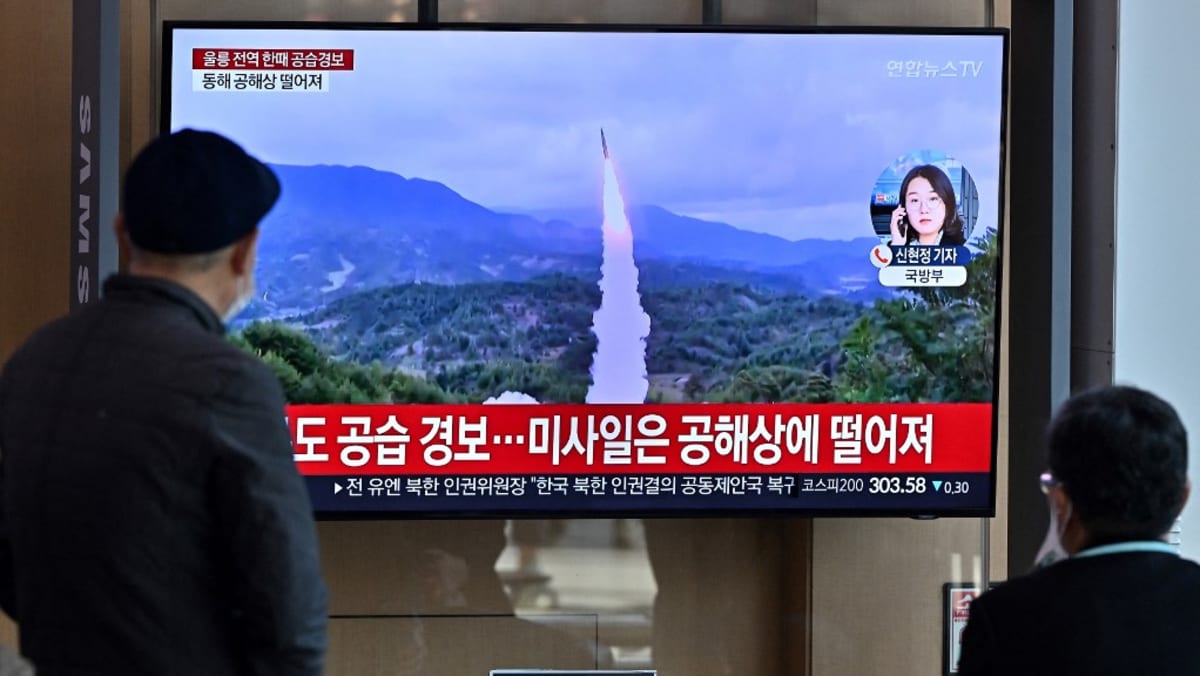
SEOUL: For the first time in nearly 70 years, nuclear-armed North Korea on Wednesday (Nov 2) fired a ballistic missile across the Northern Limit Line – the de facto maritime border that separates it from the South.
It was among 23 missiles Pyongyang fired on Wednesday, Seoul’s military said, the most in a day. They included seven short-range ballistic missiles and six ground-to-air ones.
South Korea, which suspended flight routes and warned island residents in the area to hide in bunkers, called it “effectively a territorial invasion”, firing three missiles of its own in response.
The North also fired more than 100 rounds of artillery from its east coast into a military buffer zone, South Korea’s military said.
Here’s what the Northern Limit Line is and what might explain North Korea’s actions.
Did the missile hit South Korea?
No, but it came close.
One short-range ballistic missile landed just 57km off the South Korean coast in international waters.
Seoul’s military said it was the “first time since the peninsula was divided” at the end of Korean War hostilities in 1953 that a North Korean missile had landed so close to the South’s territorial waters.
It splashed down 26km south of the Northern Limit Line, the de facto maritime border between the two countries, which remain technically at war since the conflict ended with an armistice, not a peace treaty.
What’s this border?
On land, North and South Korea are divided by a clearly marked, heavily-fortified border, the full length of which bristles with barbed wire, is studded with gun turrets and patrolled by soldiers.
At sea, after the armistice agreement, the US-led United Nations Command drew the Northern Limit Line to prevent accidental clashes between the two sides.
North Korea never officially recognised the border, claiming it should be further south.
Pyongyang thinks the Northern Limit Line is “a significant disadvantage to them”, Cheong Seong-chang, a researcher at the Sejong Institute, told AFP.
Buoyed with confidence in their nuclear weapons programmes, they may now be looking to “nullify” the de facto border, he added.
